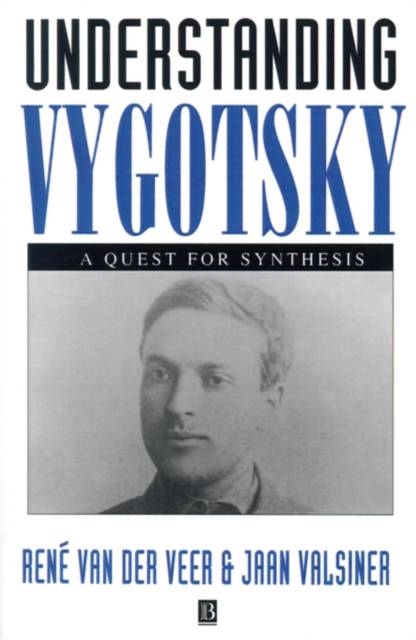
Je cadeautjes zeker op tijd in huis hebben voor de feestdagen? Kom langs in onze winkels en vind het perfecte geschenk!
- Afhalen na 1 uur in een winkel met voorraad
- Gratis thuislevering in België vanaf € 30
- Ruim aanbod met 7 miljoen producten
Je cadeautjes zeker op tijd in huis hebben voor de feestdagen? Kom langs in onze winkels en vind het perfecte geschenk!
- Afhalen na 1 uur in een winkel met voorraad
- Gratis thuislevering in België vanaf € 30
- Ruim aanbod met 7 miljoen producten
Zoeken
€ 84,95
+ 169 punten
Omschrijving
This book presents the most comprehensive introduction to the life and ideas of Lev Vygotsky (1896-1934) yet written. As a key to understanding one of the most potent influences on developmental theories this century, Van der Veer and Valsiner explore Vygotsky's ideas in the contexts of Russian psychology and the politics of the inter-war years. The authors chart Vygotsky's intellectual development through the course of his life, establishing links with his predecessors and contemporaries and illustrating his intellectual interdependence with the contemporary scientific community and the creative endeavors of the fine arts. Careful analysis of his social context allows detailed discussion of Vygotsky's indebtedness to literary scholarship, with psychoanalysis, Gestalt psychology and paedology.
Understanding Vygotsky not only shows the extent to which Vygotsky's work can be further developed to be relevant to the end of the twentieth century but also opens up scope for a more detailed analysis of his contemporaries. It will be essential reading for all students of Vygotsky and his ideas.
Understanding Vygotsky not only shows the extent to which Vygotsky's work can be further developed to be relevant to the end of the twentieth century but also opens up scope for a more detailed analysis of his contemporaries. It will be essential reading for all students of Vygotsky and his ideas.
Specificaties
Betrokkenen
- Auteur(s):
- Uitgeverij:
Inhoud
- Aantal bladzijden:
- 464
- Taal:
- Engels
Eigenschappen
- Productcode (EAN):
- 9780631189558
- Verschijningsdatum:
- 8/10/1993
- Uitvoering:
- Paperback
- Formaat:
- Trade paperback (VS)
- Afmetingen:
- 152 mm x 230 mm
- Gewicht:
- 666 g

Alleen bij Standaard Boekhandel
+ 169 punten op je klantenkaart van Standaard Boekhandel
Beoordelingen
We publiceren alleen reviews die voldoen aan de voorwaarden voor reviews. Bekijk onze voorwaarden voor reviews.









